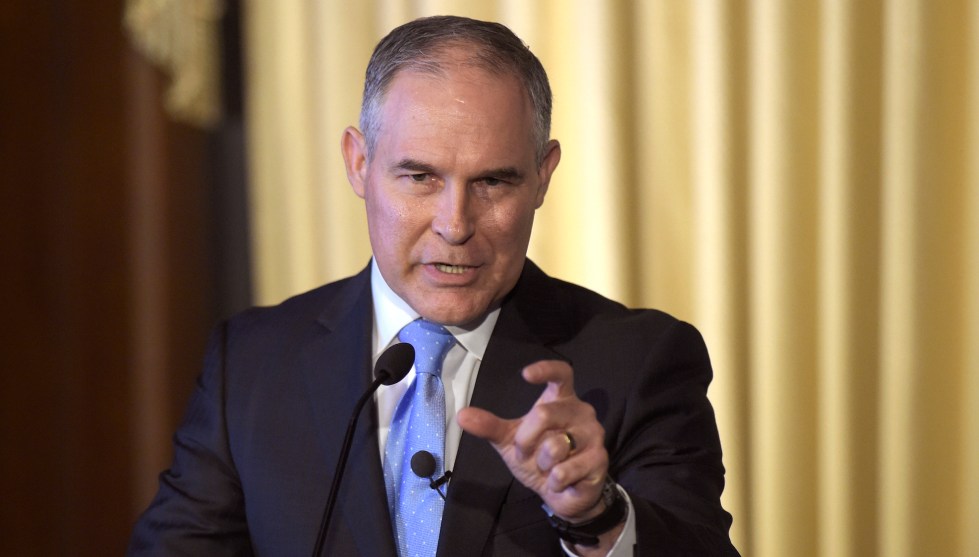
Adopting a strategy successfully employed by the tobacco industry, Environmental Protection Agency Administrator Scott Pruitt announced a sweeping new regulation that would restrict the kinds of scientific studies the agency can use in developing its regulations.
The EPA administrator, who has come under fire from both parties for his personal conduct and ethical scandals, announced the changes at an EPA event on Tuesday, where he was surrounded by conservative allies and pollution skeptics. “I know many of you here have supported this through a number of years,” he told his audience, which did not include any reporters.
For years, EPA critics have pushed Congress to forbid the agency from relying on the studies that comprise the bulk of the independent research on fossil fuels on public health. Their strategy aims to sow doubt about the health effects of air pollution, while slowing down or weakening future rules targeting particulate matter and ozone. The proposed rule is modeled after bills introduced by Smith in the House, which Pruitt described as the “codification of an approach.”
The centerpiece proposal—restricting the EPA’s use of the best available science in crafting policy—has been tried before. The tobacco industry laid out its strategy to combat “secret science” in the EPA’s work to reign in cigarette smoke in a 1996 memo, according to The Intercept, claiming that it was impossible to know the accuracy of studies in which the researcher didn’t make all their raw data public. The fossil fuel industry latter borrowed the same strategy in an attempt to undermine the landmark 1993 Harvard “Six Cities” public health study on air pollution.
Many scientists note that, in practice, the policy will prove to be unworkable. It would drastically limit the kinds of studies available to regulators crafting the agency’s air and water regulations, because many of these studies rely on sensitive medical records that cannot be made public, or may be owned by private institutions not keen on publishing proprietary information.
The EPA’s critics “are forever trying to cut this data and saying the broad scientific community aren’t giving them all the information they need to disprove this data,” says Dan Costa, former director of the EPA’s Air, Climate, and Energy Research Program, who recently retired. “The irony is whenever the industry does these studies from…










